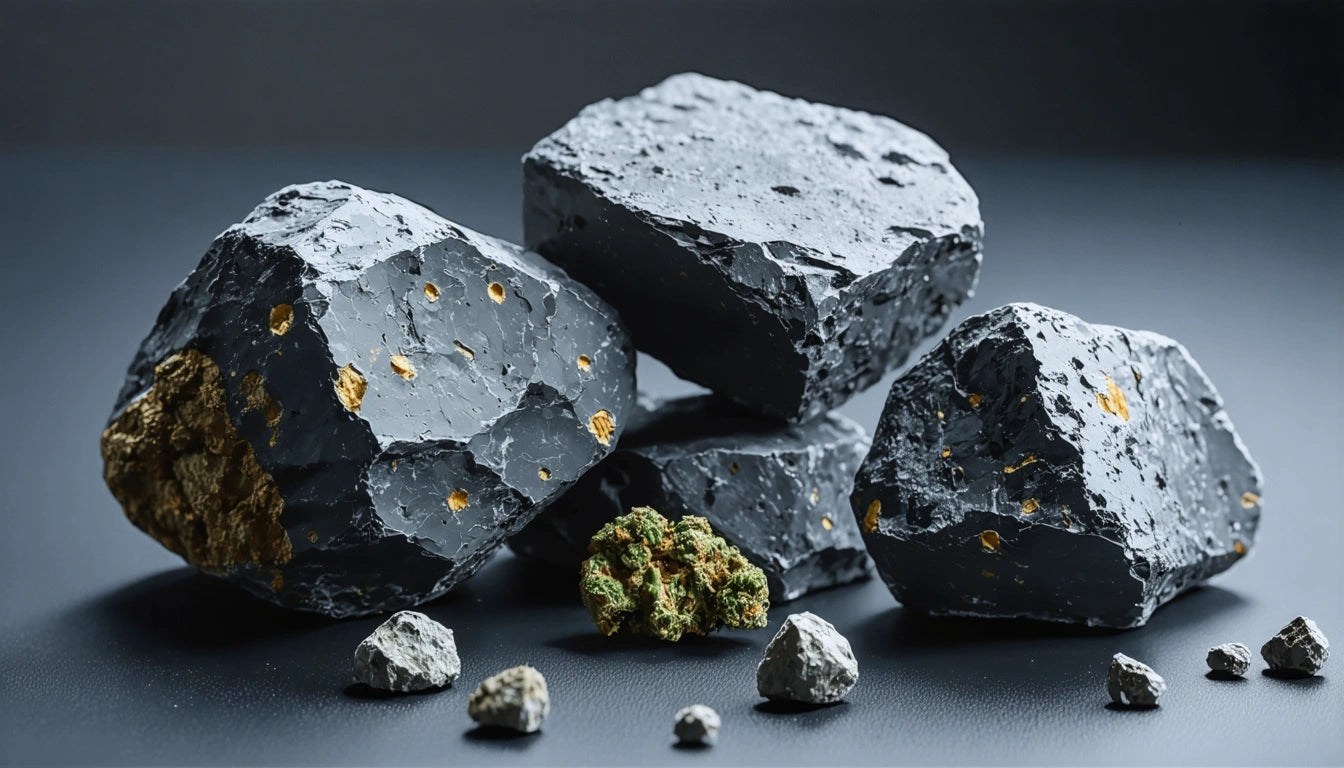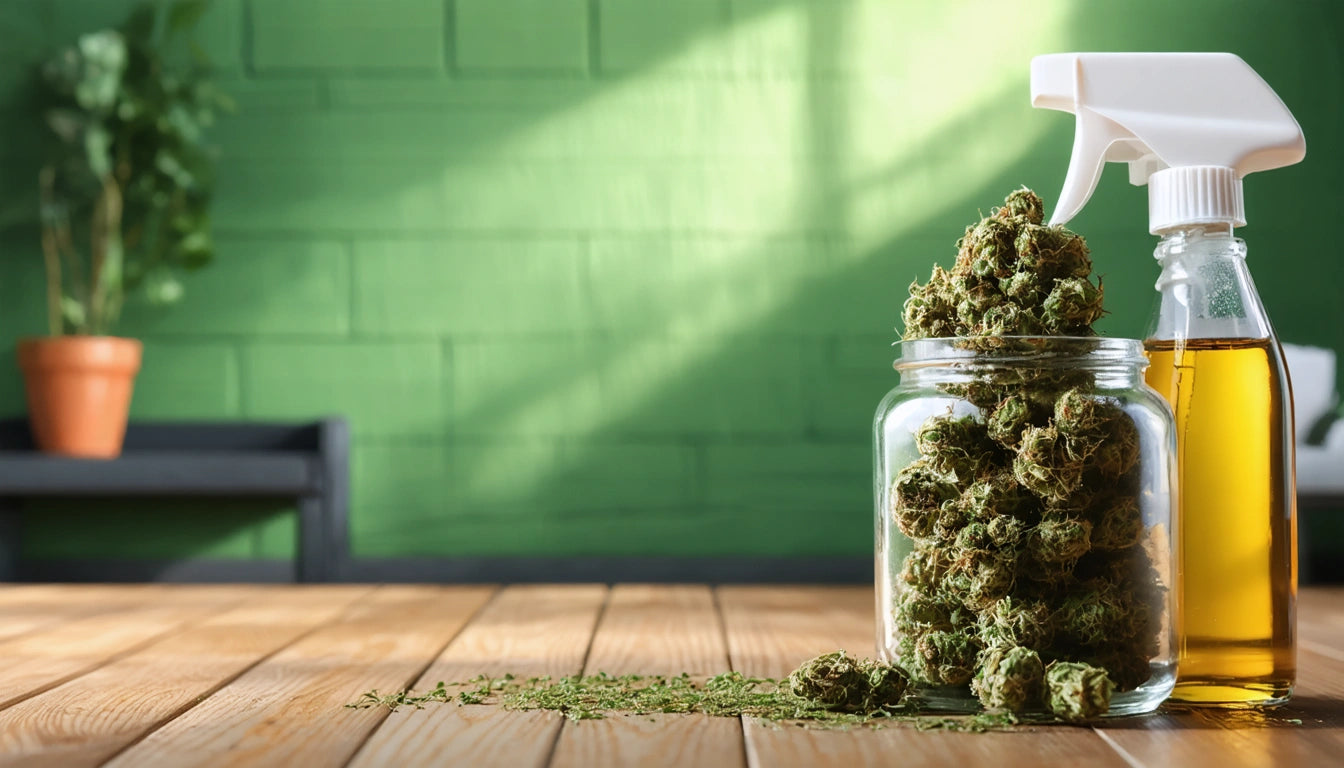Table of Contents
Understanding What Moon Rocks and Sun Rocks Look Like
Cannabis concentrates have evolved dramatically over the years, with moon rocks and sun rocks representing some of the most potent and visually distinctive products available. For both newcomers and experienced consumers, understanding what these products look like helps ensure quality purchases and proper handling.
Visual Identification of Moon Rocks
What does a moon rock look like? At first glance, moon rocks resemble small, irregular nuggets with a sticky, crystallized exterior. They typically appear as compact, rounded buds with a frosted, almost alien-like coating. This distinctive appearance comes from their multi-layered creation process, as detailed in this DIY guide to making moon rocks.
The outer layer glistens with kief crystals, giving moon rocks their signature sparkle that resembles lunar dust, hence the name. Their color varies depending on the strain used but often presents as a greenish-amber nugget with a heavy dusting of golden-yellow or light tan trichomes.
Size and Shape Variations
Moon rocks typically maintain the general shape of the original cannabis bud but appear more compact and dense. They range from pea-sized pieces to larger nuggets depending on the producer. The irregular, bumpy surface creates a textural appearance that's unmistakable when compared to regular flower.
Composition and Texture
Understanding what moon rocks look like requires knowledge of their three-part composition:
- Cannabis flower (the core)
- Cannabis oil or concentrate (the binding layer)
- Kief coating (the outer dusting)
This layered construction creates a unique texture that's sticky to the touch and substantially heavier than regular cannabis flower. When broken apart, moon rocks reveal their internal structure, with the concentrated oil visible as it saturates the flower beneath the kief coating.
For more detailed information on their composition, you can explore this comprehensive guide to moon rock composition.
What Are Sun Rocks?
What are sun rocks? Sun rocks represent the premium evolution of moon rocks, though they're often confused due to similar appearances. Sun rocks typically look more refined and uniform than moon rocks, with a glossier finish and more consistent coating.
Visually, sun rocks display a more amber-golden hue compared to the often greenish appearance of moon rocks. Their surface appears more evenly coated, with a high-quality concentrate layer that gives them a slightly translucent quality when held up to light.
Visual Distinctions of Sun Rocks
Sun rocks are distinguished by:
- A more uniform, deliberate coating
- Higher concentrate-to-flower ratio, giving them a more saturated appearance
- Golden-amber coloration that's more consistent throughout
- Less visible plant material beneath the concentrate layer
Differences Between Moon Rocks and Sun Rocks
When comparing what moon rocks look like versus sun rocks, several key visual differences emerge:
- Coating Consistency: Moon rocks have a more uneven, crystalline appearance while sun rocks feature a smoother, more uniform concentrate coating
- Color Profile: Moon rocks often retain more green from the original flower, while sun rocks present a more consistent amber-gold appearance
- Texture: Moon rocks have a grittier, sugar-coated texture from the kief, while sun rocks have a glossier, resinous surface
- Visual Density: Sun rocks often appear more saturated and dense due to their higher concentrate content
Understanding these differences helps consumers identify what they're purchasing and set appropriate expectations for potency and effects.
Storage and Packaging Considerations
Due to their sticky nature and high THC content, proper storage is essential for maintaining the appearance and potency of both moon rocks and sun rocks. Many consumers use specialized storage solutions like mylar bags that preserve freshness while preventing the products from sticking to their containers.
When properly stored, moon rocks maintain their distinctive appearance for longer periods. Without proper storage, they can dry out, causing the kief coating to flake off and the oil to harden, diminishing both their visual appeal and potency.
Handling and Breaking Apart
The sticky texture of moon rocks makes them challenging to handle. When breaking them apart, you'll notice:
- A tacky, resinous interior
- Oil that may stretch in thin strands when pulled apart
- Kief that may separate from the surface
For tips on properly handling and consuming these products, refer to this guide on how to smoke moon rocks.
Identifying Quality and Authenticity
With the popularity of these products, knowing what authentic moon rocks and sun rocks look like helps consumers avoid substandard imitations. High-quality moon rocks should display:
- A generous, even coating of visible trichomes
- A sticky but not overly wet consistency
- A noticeable weight compared to their size
- A strong, complex aroma profile
Lower quality versions might show signs of dry flower cores, sparse kief coating, or use of low-grade concentrates that appear dark or unevenly applied.
The visual characteristics of these cannabis products reflect their craftsmanship and potency. By understanding what moon rocks and sun rocks look like, consumers can better identify quality products, store them appropriately, and enjoy their unique effects safely.
Whether you're examining them for purchase or creating your own, the distinctive appearance of these concentrates represents cannabis innovation that continues to evolve within the industry's creative landscape.











Leave a comment
All comments are moderated before being published.
This site is protected by hCaptcha and the hCaptcha Privacy Policy and Terms of Service apply.